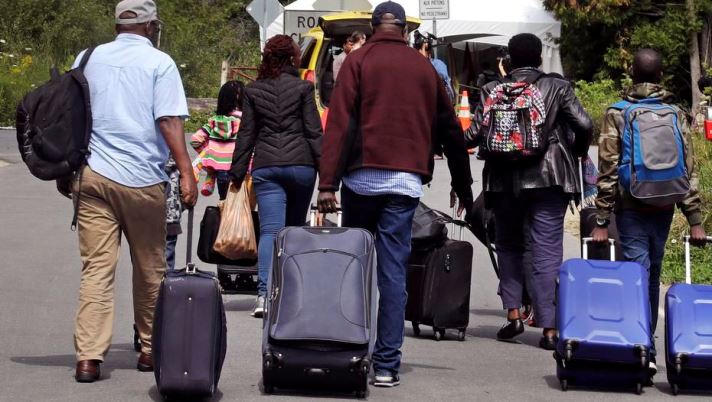The drive for prosperity: Addressing the japa syndrome
‘Japa’, a Yoruba word for “to run, flee, or escape,” has become a buzzword for the aspiration that young Nigerians have to leave the country and migrate elsewhere to seek greener pastures. It’s a response to the leadership failure across decades and governments – civilian and military. Nigeria has a population of over 200 million […]

‘Japa’, a Yoruba word for “to run, flee, or escape,” has become a buzzword for the aspiration that young Nigerians have to leave the country and migrate elsewhere to seek greener pastures. It’s a response to the leadership failure across decades and governments – civilian and military.
Nigeria has a population of over 200 million people, most of whom are youths. According to the Census Bureau of the United States, Nigeria’s population will surpass that of the United States in 2047. This is understandable, going by the data obtained from Macrotrends, and Statista, which put Nigeria’s annual population growth rate at 2.41 per cent; and the population growth of the US at 0.12 per cent in 2021.
Nigeria’s large population should be a blessing for, according to China’s revolutionary founder, Mao Zedong: ‘…the contest of strength is not only a contest of military and economic power but also a contest of human power and morale.’ To make a meaning out of Zedong’s quote, let’s take a look at China. It is pleasing that Nigeria as a nation also has this strength; as the most populous country in Africa. But the question is why are we having issues of mass migration?
For clearer insight, mass migration entails ‘large movement of people from one country to another; which could be voluntary or otherwise. Although migration is a global phenomenon, the rate at which Nigerians are leaving the shores of this country is worrisome.
There is no doubt that mass migration has lots of debilitating effects on the economy and on various aspects of a country’s life. But what are the triggers? What could make youths weather the storms of a foreign travel and foreign land and abandon their own fatherland? Nigerian youths’ desire for prosperity, the high cost of living and low standard of living, weak economy, social distress, underemployment, poverty, hunger and mounting insecurity are the causes of ‘japa’ of the Nigerian youths.
Some effects of mass migration include but are not limited to the following:
- Loss of investors’ confidence: When Nigerians are leaving in droves, it weakens the spirit of foreign investors to come and establish businesses that would translate to employment generations for our teeming youths. The message this sends to the investors is that the country’s business environment will not be favourable to investments; and lack of jobs drives social ills.
- Brain drain: One of the consequences of mass migration on the economy is that of the brain drain. Our experienced and qualified hands both in the academia and healthcare sectors, for instance, leave the country in droves for greener pastures. This has left the young upcoming ones without requisite experiences in the sectors of the economy.
In the healthcare sector, the old experienced hands that are supposed to groom and mentor the upcoming practitioners are being poached by foreign countries. This sad reality applies also to our universities and higher institutions today, where only few experienced hands are still found in the classrooms.
Today in most of our tertiary institutions, it is only teaching that takes place in classes without corresponding learning experiences; as few lecturers battle with large populations of students.
- Low economic productivity: Optimal productivity is only possible when a good number of competent and skilled workforce perform their duties. Besides the fact that it saves time and energy, it also reduces possible cases of errors on the job.
- Higher cases of errors on the job resulting in deaths: Without hostile reference to medical professionals, a good number of skilled and talented Nigerians had lost their lives or suffered from medical negligence of some practitioners arising from their hurried and shallow medical examinations that require calm and thorough diagnoses either due to lack of experiences or larger number of doctor-to-patient ratio.
- Negative perception about the country: Mass migration of our people in a desperate manner would make ‘outsiders’ form unfavorable and unrealistic collective opinions about Nigeria. Our citizens would also be perceived abroad as those who had no good future in their homelands till they migrated.
The cases of Ghana and even South Africa that had troubled our nationals in xenophobic attacks in the recent past cannot be forgotten in a hurry and not even at all.
Hence, the following practical solutions are urgently needed to reverse this unfortunate trend.
First, we must quickly embark on social mobilisation and behaviour change in communication by engaging and motivating relevant bodies and partners across board to instill the spirit of patriotism and confidence in our fellow citizens; using effective, repetitive communication and persuasion techniques. We need to make our fellow citizens believe that economic prosperity is attainable anywhere Nigeria inclusive.
Also, governments at all levels must sincerely tackle triggers of mass migration such as poverty, hunger and unemployment; and invest in modern agriculture, ICT and digital economy. To achieve these, government must genuinely craft the right macro-economic policies that will make us competitive while putting us on the same pedestal as other countries.
Furthermore, we need to promote social inclusion, plug growing wealth gaps and focus attention on programmes that will enhance standards of living and reduce costs of living.
Also very necessary and timely, we must get relevant educational bodies to craft curricula that will especially teach our young population survival skills, beyond theoretical entrepreneurship being taught, innovation and problem-solving skills right from schools; and seek to commodify our knowledge.
God bless my country, Nigeria.
Abubakar lives in Minna and can be reached via [email protected]
